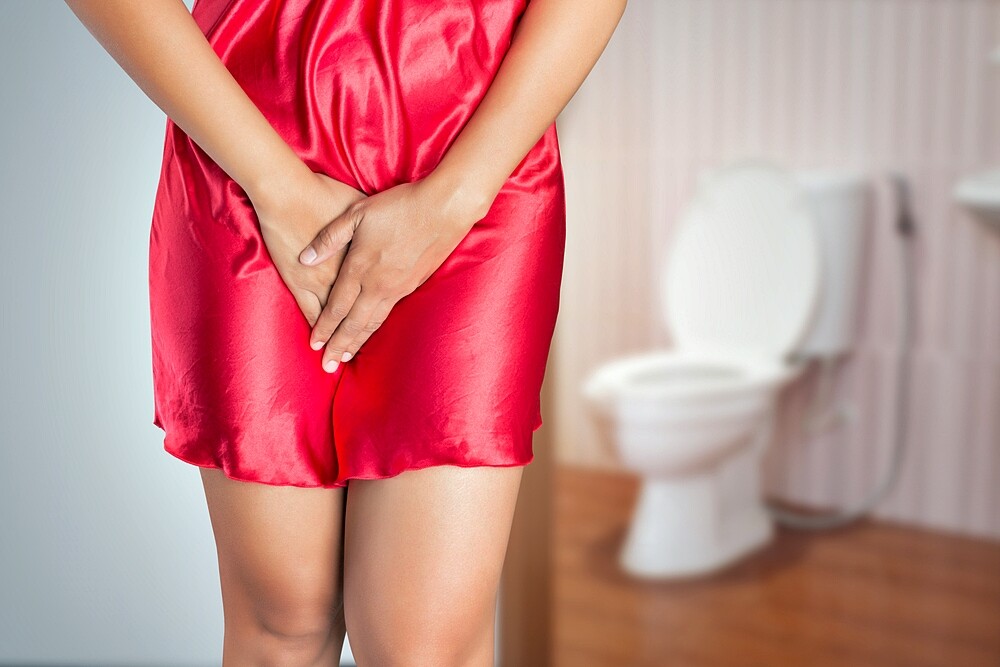Why incontinence sometimes gets better when you treat for a urinary tract infection – even though it doesn’t burn at all. What else can we do about incontinence and how can it be prevented?
Practically everybody knows that: As soon as you go to the toilet, you have to run again. And it burns like hell when you urinate. Many believe that cystitis affects young women in particular (honeymoon cystitis). But the truth is that they actually become more common with age.
Surveys show that one in ten 65-year-olds has had cystitis in the last twelve months. There are reasons for this: In old age the immune defence is often not as effective. The pelvic floor is less elastic, so the bladder lowers and the closure and emptying of the bladder no longer functions optimally. Both these factors make life easier for pathogens. And low oestrogen also favours infections that rise through the urethra into the bladder.
The bacteria in the bladder are often only noticed by chance, during the two-year health check
However, unlike young women, older women often find it difficult to recognise a bladder infection as such. Because the typical burning sensation in the toilet does not occur at all. Often enough, one can simply hold water poorly and has to get out more often at night.
Studies show that bacteria can be detected in the urine of about one in twelve 60-year-olds, and twice as often in 70-year-olds. They are usually only detected by chance, for example when a test strip is used to check the urine for the bacterial breakdown product nitrite. This is problematic because the germs from the bladder migrate from the ureter in the direction of the kidneys and can damage the organ. And then, at the latest, it is serious.
What to do?
It’s important to be careful. Elderly people should seek medical advice about the first signs of a urinary tract infection, such as the feeling that the bladder is not empty properly or that the toilet smells different. Or that some urine gets into your panties from time to time. Incontinence also often gets better if the cystitis is treated.
Antibiotics yes or no? From when an antibiotic therapy is really useful
The question is, how do you do it? Can one take antibiotics for an infection from which one suffers little or not at all? Especially since even today “normal” cystitis (i.e. the one with all the annoying symptoms such as burning sensation when urinating, extreme urge to urinate and abdominal cramps) should only be treated with antibiotics with restraint.
Long-term studies have shown that repeated cystitis in older women often disappears by itself. In addition, it is now known what little effect antibiotic therapy has in the long term. The excessive use of these drugs also contributes to the fact that bacteria are becoming increasingly resistant (i.e. insensitive) to the active substances. So first of all no.
It is better to try a so-called herbal antibiotic, such as nasturtium and horseradish, which also fights bacteria. The effect has been well documented in the meantime. Nevertheless, a chemical mace is better than a persistent or recurring urinary tract infection.
Clarify causes
Anyone who has to deal with this again and again should have it clarified whether there is a specific cause after all. Perhaps the bladder does not empty completely when you urinate because of a depression, or stones and in the worst case a tumour obstruct the flow of urine? It is also important to find out whether the kidneys may already be affected.
Which antibiotic is the right one when one is needed depends, among other things, on how well the kidneys work (in older people, kidney function is often limited), or whether they are allergic to certain active ingredients. In most cases, a standard antibiotic such as nitrofurantoin or trimethoprim is used for uncomplicated cystitis, for a few days or even as a single dose. Only if this does not help do more precise tests become necessary in order to select the right medication.
A full intestine presses on the bladder and prevents it from completely emptying
And what else can you do? A hot water bottle or hot sitz baths relax the bladder muscles and soothe the cramps. Over-the-counter medicines like ibuprofen can help relieve pain. It is important to drink enough, as a rule of thumb one and a half litres a day. However, if you are taking antibiotics, you should not drink a litre of water or bladder tea, as this would dilute the drug too much in your urine for it to work properly.
How to prevent: Simple tips to prevent urinary incontinence
Vaginal creams with estrogens are good for prevention in older women. If you repeatedly get cystitis, you should ask your gynaecologist about these products. And what about cranberry juice? Although the data situation here is contradictory, there are certainly studies that have shown a protective effect. Also important for prevention:
- Wipe from front to back in the toilet to prevent intestinal germs from entering the urethra
- Keep the lower body warm
- Get active against constipation, with exercise, lots of fruit and vegetables and possibly mild laxatives – because a full intestine presses on the bladder and prevents it from emptying completely
- Go to the bathroom right after sex. Because in an empty bladder, germs that have been carried away during sexual intercourse can multiply much less easily.

